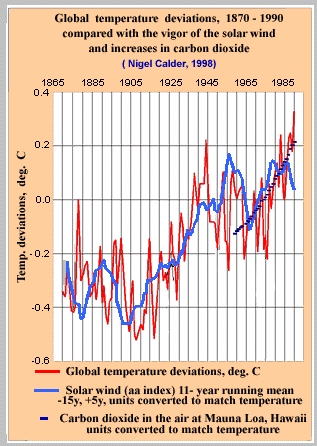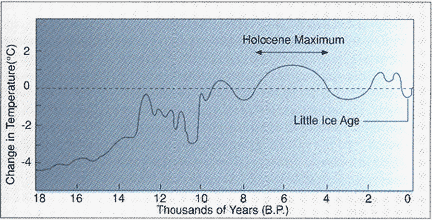Sixofnine:
"I'm curious, w/o consulting any other sources, would you and Megadude give a synopsis of what you find so repellant about the treaty?"
Great question. Hopefully in my answer you will see that it NOT because I'm an "Industrialist" (I'm not), a neo-con (hardly) or any other ignorant assessments typically leveled at any non-conforming voices.
In my own words...
Kyoto (in my opinion) would be perhaps the worst expenditure in human history. It's cost is difficult to truly comprehend. Some have used GDP as a reference. Others have measured it in Dollars or in cost per capita. Whatever the measure it's a very large amount. I know you said no references, so I won't quote any. However, one of the most comprehensive treatments of cost can be found in an a paper written by William D. Nordaus who is the Sterling Professor of Economics at Yale University. He presented his paper at a GW conference. He is a very highly respected environmental economist quoted in both sides of the debate. An exhaustive (and dry) coverage of costs can be found here.
FLAWS
China, Mexico, Brazil and other developing nations who are also, btw, large polluters, are not bound by this agreement. Kyoto would be a big boon for them, creating a massive economic and trade advantage.
ASSUMPTIONS
The scientific basis on which Kyoto is based is in considerable doubt. Computer models used to postulate the effects of global temperatures have yet to yield results anywhere close to accurate. Yet these are one of the main tools used to establish the effects of CO2 on temperature. Only recently has Water Vapor been added to a few of these models. Yet Water vapor, by far, remains the most influential greenhouse gas(95% ! ). Water vapor is unaffected by human influence.
THE SUN
Many climatologists believe, as I suspect, that the Sun is responsible for rising temperatures. I'm not aware of any that doubt the relation. Please look at the graph (earlier post) that shows the Sun's activity with Global Temperatures. Does this look like a coincidence? Incidentally, CO2 does NOT follow this same temperature pattern. In fact, during the 1930's thru 1940's Earths average Temps went down while CO2 level went up. What changed? - the Sun's radiance. Now ask yourself how people will feel if it turns out that CO2 has little affect on the climate at all? How will they look at all the money wasted? Do you think they were bamboozled? Remember we are currently at some of the lowest CO2 levels in Earths history (yes that's true). Ice ages have happened with atmospheric CO2 levels far higher (4000ppm+) than our current ~375 ppm.
COST
The cost of Kyoto is crippling. For just the US it is estimated to cost 2.2 Trillion Dollars between now and 2050. Or, put another way, like US fighting 5 more Iraq wars. Canada, New Zealand and European signatories have recently released alarming cost estimations for their countries that they will struggle to meet. I suspect abiding countries will not be able to keep the commitment - time will tell.
Summary: IT COSTS A WHOLE LOT!
BENEFIT
So, if the entire world was diligent about implementing Kyoto, what exactly will all of this cost buy? Will it stabilize atmospheric CO2? Will it stop GW? What are we getting for human history's largest expenditure? The answer: 6 years Yep, implementing Kyoto will, (if IPCC assumptions are correct -unlikely) delay Earths current warming trend by 6 years. It doesn't reverse anything. It's not a solution, it's a delay of the inevitable.... by 6 years. And as Auldsoul pointed out, this assumed delay is highly speculative.
WHY?
Perhaps the question should be what would happen if we did nothing? Would you believe that despite all of the doomsday scenarios forwarded, GW is expected (by some studies) to yield a net-benefit?
I know you didn't ask for them, by accepted data for everything I mentioned can be referenced. Just ask.
-FW


